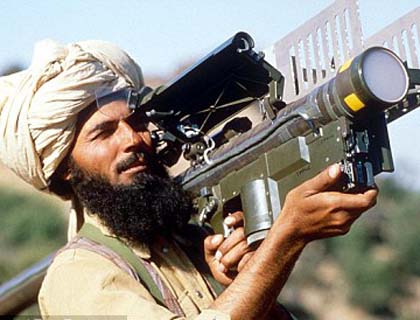Once again there are talks of fragmentation and the so-called Plan B among some circles. When the withdrawal of foreign troops was first discussed in media, there have been talks about the incapability of Afghan security forces, corruption, economic disaster and civil war. While fewer discussions have been about alternative policy, strategy and other possible options.
It's no more a matter of options either to talk with the Taliban or not. Now the US officials are not hesitant to publicly admit the talks with Taliban, except the Taliban themselves, who not only strongly deny the talks, but also reject possibilities of a political settlement to end the conflict in Afghanistan. One big problem with the mindset of Taliban leadership is the fantasy that most of the people of Afghanistan support their harsh Sharia brand and political ideology, and Taliban represent the masses.
Taliban must realize that they might enjoy widespread support in the south and southeast, but they have been and will always be unacceptable by a considerable percentage of the population in Afghanistan. It's a fact that the Taliban have never admitted, rather they believe it's only their brutality compelling the people to surrender, but also love of masses for their ideology. It's a very big fantasy, which needs to be clear in the minds of insurgent leadership, during the process towards a so-called "political settlement".
If Taliban had real support in grassroots, they would not have been fighting in the mountains and at night, rather violence would never be needed to get the political power. Whatever things used to be, the sad fact is that Taliban have yet to realize and recognize this phenomenon, which they, while living in some fantasy world, reject to accept. And such an attitude can guarantee no success in the process of talks to reach to a mutual conclusion.
Now after the announcement of foreign troops' withdrawal, the Taliban leadership who are taking part in direct talks with the US officials should focus more on their problems of acceptability within Afghanistan, rather than the armed opposition against international forces. If they are honest to end the conflict and come up with a political settlement including the fact that Taliban represent a part of the Afghan society, they must also recognize the reality that a huge population in Afghanistan strongly despise and reject their ideology.
However, recognizing the fact that Taliban hold influence and grassroots support among a faction and some parts of the Afghan society, it's equally important that the Taliban also address and the problems of how could the possible "political settlement" look like.
Amidst the discussions of alternatives in Afghanistan, federal parliamentary system would be the best possible "political settlement" with the Taliban. Afghan leaders had suggested it long ago in 2002 during the Bonn Conference and later. But unfortunately we have experienced the result. But for this fact, Taliban first needs to recognize that they are just a party to the conflict, and unacceptable by huge part of the Afghan society.
This formula could not only legitimize the political struggle of Taliban for their brand of Sharia and ideology, but also it's the only option for peaceful mutual coexistence. As we have argued before, it's not only an option to end the conflict, but for these same reasons the governments and autocratic rulers of Afghanistan have never been able to extend their influence beyond district centers; because the central system is against the nature of Afghanistan for centuries. A strong central government has never had control over all parts of the country in history.
Such a system would be the only option for a sustainable and real end to the conflict through the so-called reconciliation and reintegration dubbed as "political settlement". Taliban want a share in power, and they fight under the slogan of Sharia and religion. Some ministries and offices in Kabul would not bring them for a settlement. If local people of an area want to be ruled by Taliban, the government in Kabul will never be successful to win support of the local population, and this attempt causes the insurgency. It the same old rational discourse, simply let people be ruled by Taliban in the areas the people want them. Some of the southern provinces could go under Taliban if they take part in elections in a federal system with provincial autonomy. In such a settlement, the administrative divisions of Afghanistan need to be restructured. The country could have five or six zones or semi-autonomous states like that of the US or other federal countries.
This could be the only workable solution and "political settlement" for enduring peace and stability in Afghanistan. But unfortunately not only circles from the ruling elite of the country will strongly oppose such a system, but also some of our neighboring countries will create hurdles in this regard.
The Afghan media instead of talking about capability of Afghan security forces, return of a civil war and worsening of the situation, should discuss options for alternatives. We have only 2-3 years of the transition, and still the chance to change the fate of this country. The ultimate solution for lasting peace in Afghanistan and stability in the region is to end the conflict, and we have realized that a political settlement is the only choice for this. But the current process is very far from a real solution. Same mistakes are being made, and repeated games played. Particularly the strategy pursued by the Afghan Government will not produce a political settlement, but might ruin this last chance we have before history repeats itself for the unfortunate people of this country.

